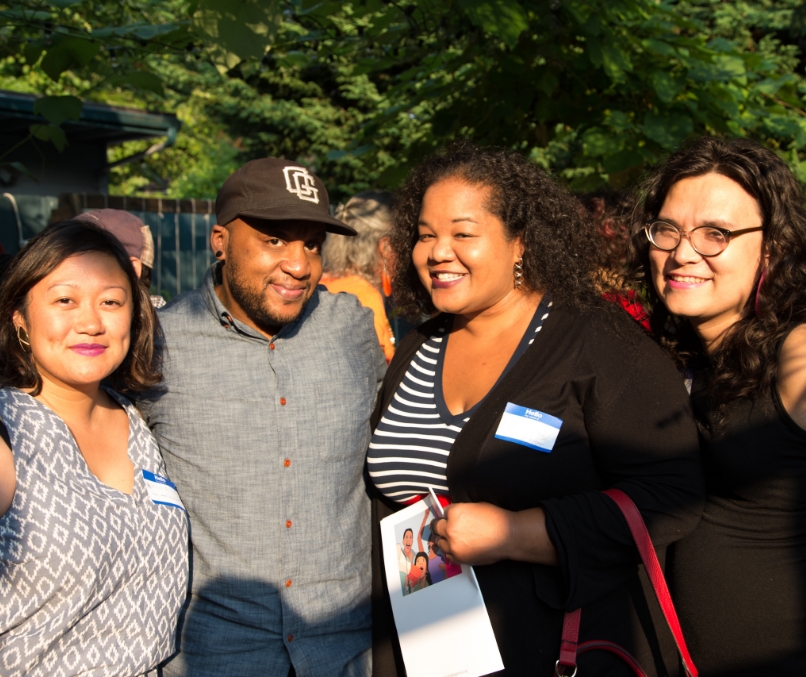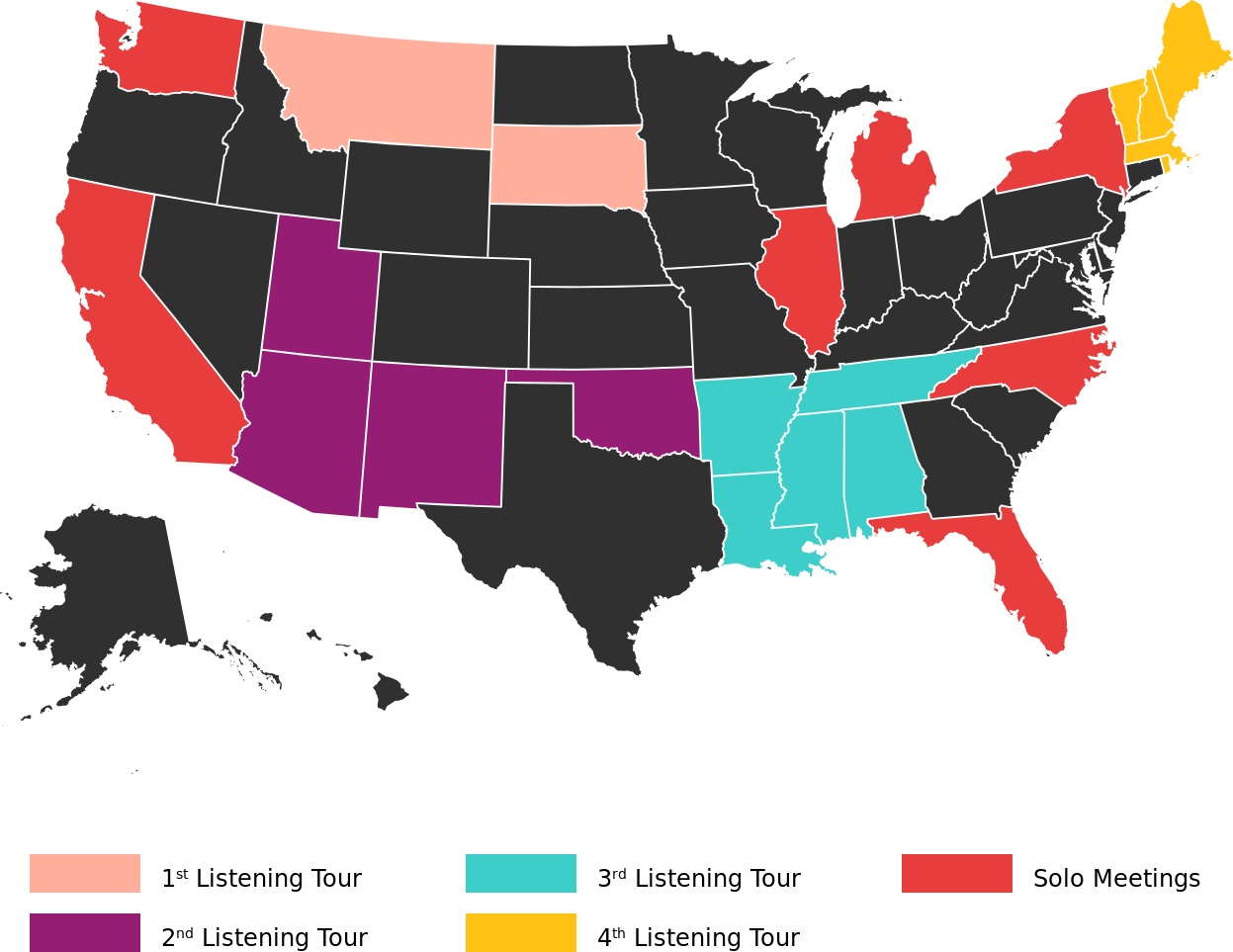
Our first fundraiser in Seattle 2014
(Left to right): Kalayo Pestaño, Gabriel Foster, Luzviminda Lulu Carpenter and TJFP Grantmaking Alumni, Kiyomi Fujikawa
From kitchen TABLES to park benches
To get to our people we traveled on planes, drove hours and hours along long, windy roads and researched towns and cities beforehand to locate local leaders in hopes they would trust us enough to meet with them and maybe even record their stories. Through audio and video interviews, we’ve been able to share their work online with other funders, the TJFP community and through our social media all in hopes to help bolster their work and offer firsthand perspectives and narratives of groups and individuals organizing in states and communities they lovingly call home.
Along our journeys we’ve sat in the kitchens of our grantees waving hello to grandparents passing through the house, we’ve been invited to visit brick and mortar offices on drop in night’s and conducted interviews on park benches with organizers in rural, small towns and cities.
Nearly every courageous organizer and magic maker we met generously shared their communities challenges and triumphs and pieces of their own personal stories. But what stood out the most was the love these individuals had for the places they called home.
While in a rural part of New Mexico, one interviewee described having had to hitchhike-as an Indiginous, trans woman-two hours in each direction to receive adequate health care. And even though she longed to live in the big city, a place with more resources and more going on, she defined home being where her family was. She went on to speak of the importance of “laying a foundation” for trans justice in her rural area even though trans affirmative health care services were so necessary for her survival yet weren’t available in her hometown. For her, having the love, housing security and support of her family along with the drive to work towards making these kinds of services available and accessible for the next generation in her local area inspired her to stay.

In a neighboring state one group described what its like organize under the constant terror of Immigration and Customs Enforcement (ICE) and another group explained what kind of impact living in a state with 27 anti-LGBT bills in legislation had on the young people they work with. We also learned more about the criticalness of these groups having access to funding, the kind of funding that allows them the grace and trust to be the experts of their own experiences, agendas, campaigns and struggles for justice. While many of the individuals and groups we met along the way were working almost in isolation with little to no funding or resources available to them, they all had stories and examples of how they made a way and we’re providing critical services that their communities were so desperately in need of. No matter where people are located and no matter how different or similar our issues are… we’re all doing this together, whether we realize it or not.
A heartfelt thank you to everyone who’s spoken with us.
Every time someone spoke we heard the passion in your voices-vibrations that could be felt from across the room. Your work is so deeply inspiring and gives TJFP purpose every day and we’ve been incredibly humbled and impacted by every conversation.
Looking towards the future we hope to continue bolstering the beautiful, heartfelt work of trans justice groups. Please take a moment to witness examples of trans justice in action from interviews from the Listening Tour on our YouTube page.
Thank you

I think that’s what makes the trans justice movement so different from other movements; we have to rely on each other in such a different way. It’s nto always being able to see each other; it’s also about being able to make space for each other, even when we’re not all in the same room.